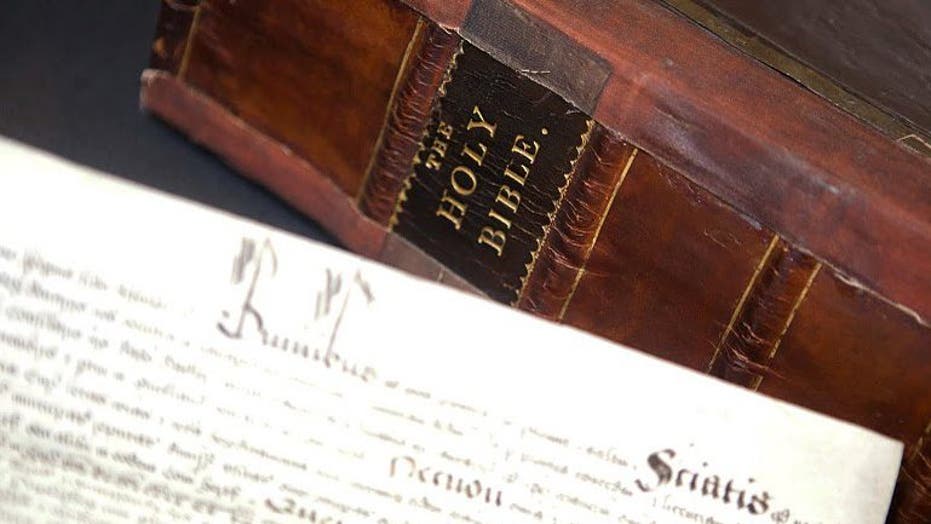About 17 months ago, the Green family went on a very expensive shopping spree.
But they didn’t burn the money on Bentleys, vacation homes or exotic yachts. They instead bought up 30,000 rare biblical texts and artifacts that now make up the largest private collection of its kind in the world.
The Greens, of Oklahoma City, are owners of the Hobby Lobby Empire, one of the nation’s leading privately owned arts and crafts retailers. Forbes Magazine puts the family fortune at around $2.5 billion.
Steve Green, president of Hobby Lobby and the leading family member behind the project, was eager to share his family’s new discoveries and pushed to have them featured in a traveling exhibit called, “Passages.”
“We believe the Bible has a positive influence and I think that all people should see what it has to say,” Green said. “We encourage people to make their choice and follow its principals like we do and strive to do.”
Scholars, politicians and businesspeople gathered for a first glimpse of some of the rare religious artifacts when Passages was announced last month at the Vatican embassy in Washington. The formal stage is set to debut at the Oklahoma City Museum of Art on May 16.
Some of the most notable antiquities include: the second-largest private collection of Dead Sea Scrolls, which are expected to help understanding of the earliest texts in the Bible, and the world’s largest private collection of Jewish scrolls, which includes Torahs recovered from Nazi concentration camps.
It also includes early printed parts of the Gutenberg Bible, one of the first major books printed in movable type in the 1450's, and a comprehensive collection of English bibles through the King James era.
But perhaps the collection’s most prized possession is the Codex Climaci Rescriptus, one of the earliest surviving Bibles. Purchased from a London auction house, Green says the Codex is one of his favorites, and is the fifth-oldest relatively complete bibles in the world.
Like any vintage item, these one-of-a-kind artifacts come with a big price tag. Museums don't disclose the amount spent on individual pieces, and the Green family abides by those standards. When asked how much the collection or even a single artifact was purchased for, Mr. Green declined to go into detail.
“It’s invaluable. We have texts that people have lost their lives to make, what you purchase it for and what it's worth are two different things,” said Dr. Scott Carroll, director of the Green collection. The cost of a single can be staggering. A Wycliffe, which is known as a group of bible translations from 1382-1395, can go for around $2.5 million to $3 million.
Spending millions of dollars on religious artifacts is not new to the Green family. Hobby Lobby CEO David Green is a regular donor to Christian organizations and joined Warren Buffet, Bill Gates and other wealthy Americans last year in ‘Giving Pledge,’ a promise to give away most of their fortunes to charitable causes.
The Greens live by Christian principles and apply them in their thriving business. Christian music can be heard throughout store hallways. They close up shop every Sunday. And while some have wondered if the family aim is more about proselytizing than collecting, others admire their generous efforts.
“If the collection can shed light on how these revered texts came to be, and why they were protected and passed down from generation to generation, that’s reason enough to applaud it,” said Father Edward Beck, a Catholic priest.
The astonishing collection has created buzz in the world of rare book collecting. “Auction season goes in cycles, you get sales in the spring and then they heat up again in the fall,” said Stephen Massey, an appraiser experienced in ancient religious objects. “There was buzz about this last spring, but that same buzz wasn’t repeated in the fall or winter. But now here we are in the spring and the buzz is back.”


